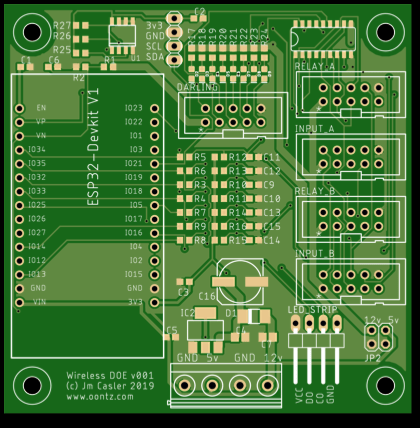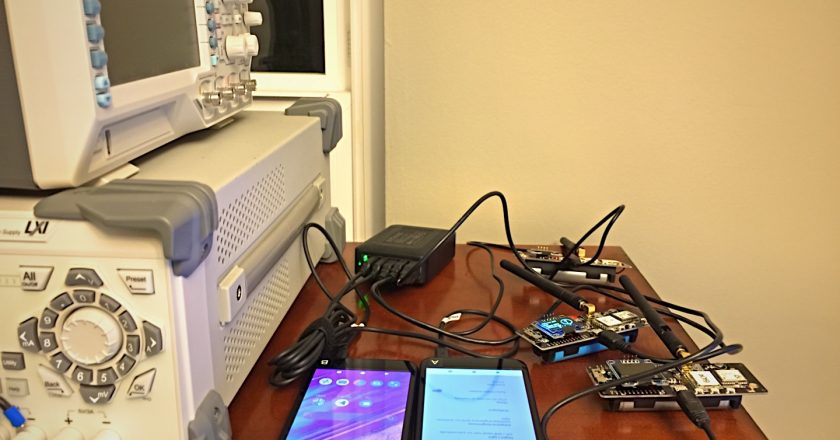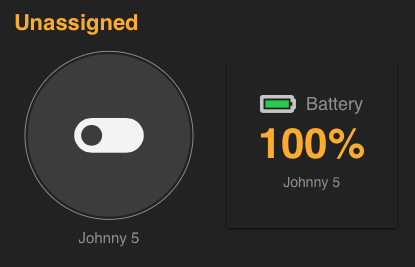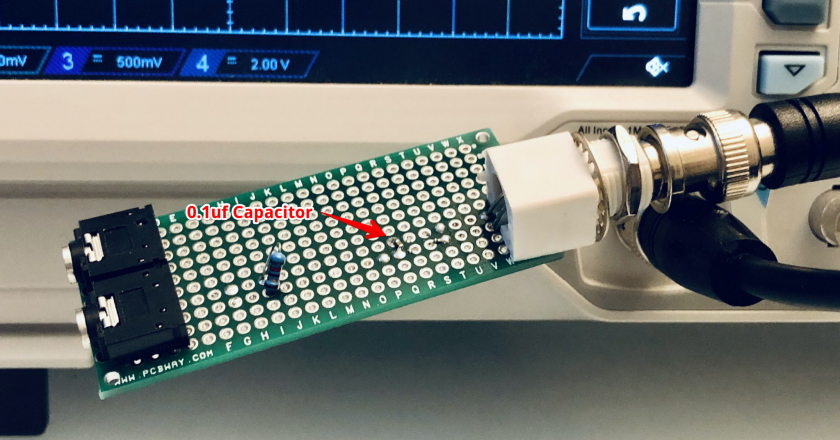In Collaboration with the Dragons of Eden and Illumination Village, we have created the first revision of a standardized wireless controller for Flame Effects Devices. While it’s targeted at flame effects, it’s also a robust and inexpensive platform for other IoT use cases.
Power Management
- 9-18vdc input
- Double regulated power rail for the uC and Voltage References
- 3.3vdc and 5vdc onboard regulators
- Header for external Lithium Ion battery and charger.
- Regulated power supplies are isolated and buffered from surges of the unregulated supply.
Status Display
- Display header can be used for either two common LED status outputs (max 10ma, ea) or an array of hundreds of APA102 SPI connected RGB LEDs.
Output Header
- 1x 10pin, 8 Output header – Direct Drive
- Sink 500ma per pin (Via Darlington Array)
- LED status lights on each output
- Enough drive current to operate fairly large solenoids or relays
- Built in flyback diodes to drive inductive loads
- 1x 10pin, 8 Output Header – General Purpose
- Pins are 1:1 mapped with the Direct Drive header
- Unregulated output
- 1x 10pin, 8 Output Header – Special Purpose
- These pins expose the special functions of the controller and may be shared elsewhere on the board.
- Regulated 3.3vdc & Unregulated output
Input Header
- 1x 10pin, 7 Input General Purpose Header – Protected
- 0.01uf Capacitor and 10k Pull Up to for debouncing and ESD protection
- 100ohm Series Resistor to limit surges
- Regulated 3.3vdc & Unregulated output
- 1x 10pin, 7 Pin Header – Special Purpose
- These pins expose the special functions of the controller and may be shared elsewhere on the board.
- I2C
- Regulated 3.3vdc & Unregulated output
Wireless Connectivity & uC
- The DoE Receiver is built on top of the ESP32 by Espressif.
Schematic and PCB is in GitHub




